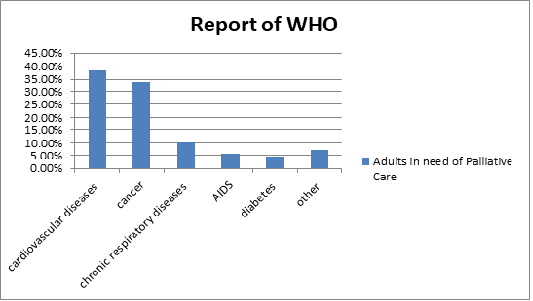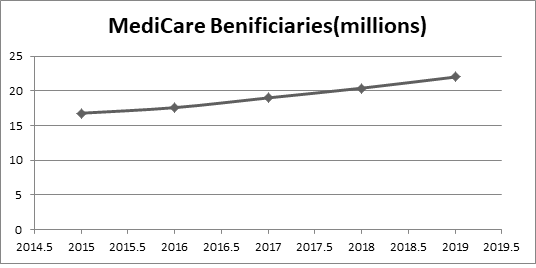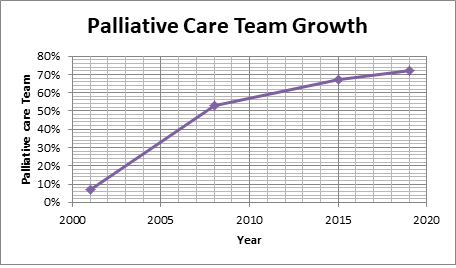Theme: New Innovations & Multidisciplinary Approach to Palliative Care
Hospice 2020
- Palliative Care Specialist
- Pediatricians
- Health Care community
- Clinicians and Researchers
- Funders
- General public
- Geriatricians
- Medical Director
- Nursing Home Directors and Members
- Palliative Care Nurses
- Pharmacists
- Occupational Therapists
- Healthcare Faculty
- Social Workers
- Community care coordinators
- Business Delegates and Industry Professionals
- Researchers
- Students and others interested in the field of Medical Care.
Introduction to Hospice and Palliative Care
Hospice and Palliative Care is specialized medical care provided for people living with serious illness. It focuses on providing relief from the symptoms and stresses of a serious illness and improves the quality of life. The palliative care uses an interdisciplinary team to fully address the needs of patients and families. Nurse practitioners, nurses, social workers and pharmacists work alongside physicians to address psychosocial and spiritual concerns of patients and families in addition to physical symptoms. The main Difference in Hospice and Palliative care is Hospice care is reserved for terminally ill patients when treatment is no longer curative during the last 6 months of life, assuming the disease takes its normal course. Palliative care can be employed while the patient is continuing active treatment through different phases of their life limiting condition.
Hospice has 4 levels of care: routine home care, general inpatient care, continuous care, and respite care. Most hospice care is routine home care, delivered in the patient's residence to ensure comfort and avoid hospitalization. The expansion of primary palliative care delivered by PCPs will greatly promote symptom management and quality of life for patients throughout the course of a life-threatening illness, not just at the end. Palliative care is a resource for anyone living with a serious illness, such as heart failure, chronic obstructive pulmonary disease, cancer, dementia, Parkinson's disease, and many others. Palliative care can be helpful at any stage of illness and is best provided from the point of diagnosis
Track 1: Palliative Care and Chronic Diseases
Chronic illnesses are marked by fluctuations and variations over time. Individuals with chronic illness experience pain and other symptoms that are not always adequately managed. Their caregivers often must deal with enormous burden as the illness progresses. Palliative care can serve as an intervention to manage chronic illness, not just at the end of life but also in the early phases of illness. The Primary treatment needs the urgent attention and Secondary outcomes will include health-related quality of life, care giver burden, quality of care and cost-effectiveness of interventions.
- Congestive Heart Failure
- Chronic Obstructive Pulmonary Disease
- Amyotrophic Lateral Sclerosis
Related Conferences:
Palliative Care, Hospice, Medicine and Wellness, September 10-11, 2020 Prague, Czech Republic | Annual Meeting on Supportive Care in Cancer, June 25-27, 2020 Seville, Spain | Global Experts Meeting on Healthcare and Nursing, September 07-08, 2020 Melbourne, Australia
Track 2: Pediatrics and Children Care
Pediatrics and children care is logical treatment of child illnesses. The investigations of kid care with explicit consideration regarding the effect of age at section and sum, quality, and sort of care on kids' versatile working. Pediatric nurture has duties to giving nursing care in emergency clinic, home, clinical, school where kids needs Counseling for the specific disease. The child requires both caring and curing where the caring is constant procedure in both disease and wellbeing and curing allude to diagnosis and the management
- Versatile Working
- Child Illnesses
- Pediatric nurture
Related Conferences:
48th Global Congress on Nursing Education and Research July 31- August 01, 2020 Singapore | Chest Congress 2020 June 25 – 27, 2020 Italy | Medical Summit and Expo on Palliative Care, Women's health and Gynecology November 23-25, 2020 Rome, Italy
Track 3: Regional and Rural Palliative Care
Palliative care is a very important to older person at the end of their life that’s the good death. The survey gives result that the rural area has less palliative care facility compare to the urban area. The palliative care has to improve in the rural area also and the people have to understand the importance of palliative care and the required information has to give for the rural person about the disease so that they can take palliative care. Services less available in rural area that may contribute to the lower proportion of home deaths in rural areas include the lower availability of home-based services, the lack of 24-hour care, and delays in service provision.
- Good Death
- Rural Palliative Care
- Regional Palliative Care
International Conference on Aging & Health April 20-21, 2020 Singapore City, Singapore | Palliative Care Congress, March 19-20, 2020 Britain | Singapore Palliative Care Conference, July 08-11, 2020 Singapore
Track 4: Palliative Care in Aged Care
Aged care refers to the additional care required for an older person needing regular health professional input either in the aged care home. Palliative care is according to WHO Organization an approach that improves the quality of life of patients and their families facing the problems associated with life-threatening illness, through the prevention. It is important that older people are supported to receive high quality palliative care in the setting of their choice, whether that be in their own home or in a residential aged care facility. Availability of high quality palliative care in aged care facilities and people’s own homes will enable older to have a good death.
- Aged Care
- Good Death
- Life-threatening illness
11th World Research Congress of the EAPC May 14-16, 2020 Palermo, Italy | Annual Congress on Pediatric and Neonatal Nursing June 10-11, 2020 London, UK | International Conference on Nursing and Healthcare 2020 February 22-23, 2020 Lumpur, Malaysia
Track 5: Palliative Care Education
Palliative care Education is very important to improve the knowledge and skills in the caring of the person. Palliative education required for the nurses, physicians, and other disciplines associated with clinical care. End-of-Life Nursing Education Consortium (ELNEC) is Education institution train-the-trainer approach to provide undergraduate and graduate nursing faculty, nursing Continuing Education faculty, staff development educators, staff nurse, specialty nurses in pediatrics, oncology, critical care and geriatrics, and other nurses with education in palliative and end-of-life care
- End-of-Life Nursing Education Consortium
- End-of-Life Care
- Palliative Care Trainer
Related Conferences:
Palliative Care, Hospice, Medicine and Wellness, September 10-11, 2020 Prague, Czech Republic | Annual Meeting on Supportive Care in Cancer, June 25-27, 2020 Seville, Spain | Global Experts Meeting on Healthcare and Nursing, September 07-08, 2020 Melbourne, Australia
Track 6: Multidisciplinary Approach to Palliative Care
Some of the serious Diseases may require special care. Due to the complex care needs of patients with advanced life-limiting illness it is our experience that a multidisciplinary approach to care can optimize the patient and family illness experience for this vulnerable population. As the illness progresses and care needs become increasingly complex, achieving high-quality whole-person care often necessitates care in multiple settings like inpatient hospitalization, outpatient clinic, and home-based care. Early identification and involvement with palliative care provides multidisciplinary resource for advanced care planning, supportive care, and expert level symptom management. Collaboration between patient/family, oncology providers, and palliative care can occur concurrently with medical treatments, providing for a team-based approach to advanced malignancies, focused on patient-centered care and quality of life
- Advanced Life-Limiting illness
- Inpatient hospitalization
- Quality of life
Related Conferences:
48th Global Congress on Nursing Education and Research July 31- August 01, 2020 Singapore | Chest Congress 2020 June 25 – 27, 2020 Italy | Medical Summit and Expo on Palliative Care, Women's health and Gynecology November 23-25, 2020 Rome, Italy
Track 7: Palliative Care and Bioethics
Clinical ethics is a practical discipline that provides a structured approach for identifying, analyzing, and resolving ethical issues in medical care . Health Professional has to follow some ethical issues in the palliative care like issues related to autonomy, decision-making, whether to withhold or withdraw treatment, nutrition and hydration. So the Nurses working within a specific dominant culture and tradition need to respect the dominant tradition of the institution where they practice at the same time negotiating between ethical systems to meet the goals of the patient
- Respect for persons (autonomy)
- Beneficence
- Justice.
Related Conferences:
International Conference on Aging & Health April 20-21, 2020 Singapore City, Singapore | Palliative Care Congress, March 19-20, 2020 Britain | Singapore Palliative Care Conference, July 08-11, 2020 Singapore
Track 8: Palliative Care and non-malignant Diseases
Palliative care in non-malignant Disease is very important and the existing care method has to update. The palliative care must be based on need, not diagnosis, and the physical and psychological needs of patients with advanced non-malignant disease differ little from those of patients with cancer. The diseases Like Chronic Heart failure, Chronic Lung disease , End Stage renal disease need complex specialist rather than specific diagnoses, the prospect becomes less daunting. Even if there is insufficient capacity for specialist palliative care services to support all patients with non-malignant diseases, care could be improved by the dissemination of expertise and knowledge.
- Non-Malignant Diseases
- Chronic Diseases
- Specific Diagnoses
Related Conferences:
11th World Research Congress of the EAPC May 14-16, 2020 Palermo, Italy | Annual Congress on Pediatric and Neonatal Nursing June 10-11, 2020 London, UK | International Conference on Nursing and Healthcare 2020 February 22-23, 2020 Lumpur, Malaysia
Track 9: Palliative Care in Symptom Management
Geriatrics is a specialty that focuses on health care of elderly people. It aims to promote health by preventing and treating diseases and disabilities in older adults. There is no set age at which patients may be under the care of a geriatrician or geriatric physician, a physician who specializes in the care of elderly people. Rather, this decision is determined by the individual patient's needs, and the availability of a specialist. Geriatrics differs from standard adult medicine because it focuses on the unique needs of the elderly person. The aged body is different physiologically from the younger adult body, and during old age, the decline of various organ systems becomes manifest. Previous health issues and lifestyle choices produce a different constellation of diseases and symptoms in different people.
- Geriatrics
- Geriatric Physician
- Health Issues
Related Conferences:
Palliative Care, Hospice, Medicine and Wellness, September 10-11, 2020 Prague, Czech Republic | Annual Meeting on Supportive Care in Cancer, June 25-27, 2020 Seville, Spain | Global Experts Meeting on Healthcare and Nursing, September 07-08, 2020 Melbourne, Australia
Track 10: Palliative Care and Rehabilitation Medicine
Palliative care and Rehabilitation medicine share the most common goals. They strive to maximize physical function and emotional well-being to the highest extent possible given the nature of the underlying disease process. Many patients with End-Stage disease experience symptoms and functional losses that diminish their quality of life. Rehabilitation and palliative care have emerged as two important parts of comprehensive medical care for patients with advanced disease. clinical experts suggests that the application of the fundamental principles of rehabilitation medicine is likely to improve their care. Physical function and independence should be maintained as long as possible to improve patients quality of life and reduce the burden of care for the caregivers.
- Rehabilitation medicine
- End-Stage Disease
- Medical Care
Related Conferences:
48th Global Congress on Nursing Education and Research July 31- August 01, 2020 Singapore | Chest Congress 2020 June 25 – 27, 2020 Italy | Medical Summit and Expo on Palliative Care, Women's health and Gynecology November 23-25, 2020 Rome, Italy
Track 11: Palliative Care and Occupational Therapy
Occupational therapy practitioners play an important role on palliative and hospice care teams by identifying life roles and activities (“occupations”) that are meaningful to patients and addressing barriers to performing these activities. Unlike other health care providers, they consider both the physical and psychosocial/ behavioral health needs of the patient, focusing on what is most important to him or her to accomplish, the available resources and support systems, and the environments in which the patients want and can participate.
- Occupational Therapy
- Functional Difficulties
- Activity limitations
International Conference on Aging & Health April 20-21, 2020 Singapore City, Singapore | Palliative Care Congress, March 19-20, 2020 Britain | Singapore Palliative Care Conference, July 08-11, 2020 Singapore
Track 12: Palliative Care and Spiritual Care
Spiritual care is an essential domain of palliative care, which focuses on the needs of the whole person and their family. Spirituality is a fundamental element of human experience. It includes the character’s search for meaning and determination in life and the experience of the superior. For some people spirituality can be largely faith based, for others it may be their relationship with nature or the profound connections they have with their people. Spirituality may or may not involve devout opinions.
- Terminal illness
- Emotional and Social needs
- Spiritual Distress
Related Conferences:
11th World Research Congress of the EAPC May 14-16, 2020 Palermo, Italy | Annual Congress on Pediatric and Neonatal Nursing June 10-11, 2020 London, UK | International Conference on Nursing and Healthcare 2020 February 22-23, 2020 Lumpur, Malaysia
Track 13: Palliative care and Emergency Medicine
Emergency Medicine has progressively taken a central role in the early execution of palliative care. Patients with a serious disease are likely to find themselves in an emergency section at some point along their course of illness, and they should expect to receive high-quality palliative care in that setting. Common integration of palliative care into the day-to-day practice of emergency medicine, however, is often exposed by the demands of many competing priorities. Palliative care intercessions in the ED catch high-hazard patients during a period of emergency and can drastically improve understanding focused results. Emergency medicine needs to appropriately tried with legitimate convention before utilizing in the palliative consideration.
- Emergency Medicine
- Evidence-based practice
- Clinical decision support
Related Conferences:
Palliative Care, Hospice, Medicine and Wellness, September 10-11, 2020 Prague, Czech Republic | Annual Meeting on Supportive Care in Cancer, June 25-27, 2020 Seville, Spain | Global Experts Meeting on Healthcare and Nursing, September 07-08, 2020 Melbourne, Australia
Track 14: Palliative Care Nursing
‘’Nursing is primarily assisting the individual in the performance of those activities contributing to health and its recovery, or to a peaceful death’’ Virginia’s definition of Nursing. The role of Nursing in palliative care is to provide relief for physical symptoms, achieving quality of life, maintaining an independent patient, relief for mental anguish and social isolation, family support, reducing isolation, fear and anxiety and good death or dying well. The role of Nursing is very important in the palliative care So they need high Skill and knowledge related to palliative care and they need to update according to the patient requirements for their better ending of their life.
- Nursing
- Virginia’s
- Quality of life
Related Conferences:
48th Global Congress on Nursing Education and Research July 31- August 01, 2020 Singapore | Chest Congress 2020 June 25 – 27, 2020 Italy | Medical Summit and Expo on Palliative Care, Women's health and Gynecology November 23-25, 2020 Rome, Italy
Tracks 15: Palliative Care in Oncology
Oncology deals to the patient of cancer for medically treatment. The patients suffered so much by the medical treatment from side effects and emotional issues. Palliative care provides professional treatment and provide the treatment against the symptoms, their side effects, and emotional problems. Palliative care pushes upward to provide mentally fit. Cancer symptoms may incorporate pain, sickness, vomiting, fatigue, depression, constipation, diarrhea, confusion or shortness of breath. Palliative Care authorities are expertise to interpret the complex medical statistics and can enable you to understand for this They need Better prevention from the palliative care.
- Oncology
- Professional Treatment
- Cancer symptoms
Related Conferences:
International Conference on Aging & Health April 20-21, 2020 Singapore City, Singapore | Palliative Care Congress, March 19-20, 2020 Britain | Singapore Palliative Care Conference, July 08-11, 2020 Singapore
Tracks 16: Palliative Care in Pain Management
Palliative care is a special type of medical care that focuses on treatment of symptoms people may have when they are living with a chronic (longstanding) illness, such as cancer or heart failure. It is often compared to the hospice care that is offered to terminally ill people. In palliative care the goal is to provide the best quality of life possible even if someone is not terminally ill. Palliative care can be given when a person is assimilating treatment for a disease and when there is no useful treatment for the disease. However the majority of patients with cancer have pain, proper use of opoids and adjuvant drugs can provide adequate relief in most cases
- Pain Management
- Chronic illness
- opioids
Related Conferences:
11th World Research Congress of the EAPC May 14-16, 2020 Palermo, Italy | Annual Congress on Pediatric and Neonatal Nursing June 10-11, 2020 London, UK | International Conference on Nursing and Healthcare 2020 February 22-23, 2020 Lumpur, Malaysia
Tracks 17: Palliative Care and Health Issues
Palliative care can address a broad range of issues, integrating an individual’s specific needs into care. The physical and emotional effects of cancer and its treatment may be very different from person to person. For example, differences in age, cultural background, or support systems may result in very different palliative care needs Health Professionals treatments incorporate are intended to re-establish the body/mind balance and incorporate things like aromatherapy, guided relaxation and imagery, music therapy, and therapeutic touch. They are thought to have a positive outcome with regards to helping the patient fall asleep, facilitating muscle pressure, improving the impact of pain medication, upgrading rest, and relieving anxiety.
- Health Issues
- Palliative care needs
- Music Therapy
Palliative Care, Hospice, Medicine and Wellness, September 10-11, 2020 Prague, Czech Republic | Annual Meeting on Supportive Care in Cancer, June 25-27, 2020 Seville, Spain | Global Experts Meeting on Healthcare and Nursing, September 07-08, 2020 Melbourne, Australia
Tracks 18: Hospice and Palliative Care
Hospice and Health Care is the active, expert and gentle care and support of individuals living with a serious, progressive illness when cure is not expected. This is the holistic in nature – caring for the whole person and their family. The aims of hospice and health care are to support and improve quality of life for those in the last stage of living, and their families. This offers social, emotional and spiritual support to individuals and families through members of an interdisciplinary team including physicians, nurses, social workers, home care nursing, home support, Hospice staff and volunteers, and other disciplines. Palliative care may be offered for people with illnesses, such as like: Cancer, Heart disease, Lung diseases, Kidney failure, Dementia, HIV/AIDS, ALS (amyotrophic lateral sclerosis) etc.
- Hospice
- Palliative Care
- Nursing
Related Conferences:
International Conference on Aging & Health April 20-21, 2020 Singapore City, Singapore | Palliative Care Congress, March 19-20, 2020 Britain | Singapore Palliative Care Conference, July 08-11, 2020 Singapore
Track 19: Palliative Care in Geriatrics
Geriatric medicine is the medical specialty focusing on the medical care of elderly persons. It was developed as a response to the growing elderly patient population. It focuses on the prevention, assessment and management of their specific health problems across the disease trajectories and includes the physical, mental, social and spiritual dimension. Geriatric medicines focus on the unique need of the elderly person. The physical changes occurred in the elder person like fast change in mental status, acute pain, uncertain symptoms, decrease of wellbeing, Dehydration, Anorexia strange medical reactions. Geriatric palliative care provides comprehensive care for older patients entering to the later stage of their lives.
- Geriatrics
- Emergency Medicine
- Spiritual dimension
48th Global Congress on Nursing Education and Research July 31- August 01, 2020 Singapore | Chest Congress 2020 June 25 – 27, 2020 Italy | Medical Summit and Expo on Palliative Care, Women's health and Gynecology November 23-25, 2020 Rome, Italy
Track 20: Palliative Care in Assisted Dying
Assisted Dying is process in which the patient wants to die by himself but the palliative care makes him strong with proper medical care. Palliative care seeks to identify and alleviate suffering across the trajectory of a life-threatening illness, including care at the end of life, and supports good death while dying. It is evident that doctors cannot decide in a paternalistic way how a disease should be treated and that patients should be inform about the severity of the disease, its impact on quality of life, life expectancy, the options to cure or slow down the disease, and all the possibilities of supportive care.
- Assisted Dying
- Life-Threatening illness
- Good death
Related Conferences:
Palliative Care, Hospice, Medicine and Wellness, September 10-11, 2020 Prague, Czech Republic | Annual Meeting on Supportive Care in Cancer, June 25-27, 2020 Seville, Spain | Global Experts Meeting on Healthcare and Nursing, September 07-08, 2020 Melbourne, Australia
Track 21: Palliative Care and End of life Care
Palliative care that improves the quality of life and quality of care for patients with life threatening or life-limiting sickness and their families through the prevention and relief of suffering, communication about goals of care, and early identification and assessment and treatment of pain and other problems, physical, psychosocial and spiritual.
End-of-Life-care is care taking place in the last part of a patient’s life, typically in the last few months, depending on the primary diagnosis and clinical course and includes planning for end-of-life care.
- End of life Care
- Medical Care
- Hospice
48th Global Congress on Nursing Education and Research July 31- August 01, 2020 Singapore | Chest Congress 2020 June 25 – 27, 2020 Italy | Medical Summit and Expo on Palliative Care, Women's health and Gynecology November 23-25, 2020 Rome, Italy
- National Hospice and Palliative Care Organization
- Hospice and Palliative Care Japan
- International Association for Hospice and Palliative Care
- American Academy of Hospice and Palliative Medicine
- American Board of Hospice and Palliative Medicine
- The Canadian Hospice Palliative Care Association
- Center to Advance Palliative Care
- European Association for Palliative Care
- European Organization for Research and Treatment of Cancer
- Hospice and Palliative Nurses Association
- National Hospice and Palliative Care Organization
- Worldwide Hospice Palliative Care Alliance
- VITAS Health Care
- Georgia Hospice and Palliative Care Organization
- Missouri Hospice & Palliative Care Association
- National Hospice Foundation.
- Japan Hospice Palliative Care Foundation.
- Community Hospice and Palliative Care.
- Medicare Payment Advisory Commission.
- Accreditation Commission for Health Care.
- Hospice & Palliative Care Federation of Massachusetts.
- Hospice Foundation Of America
- Society for the Promotion of Hospice Care.
- Kasih Hospice Care Society
- American Cancer Society.
- Singapore Cancer Society.
- Hong Kong Society of Palliative Medicine.
- Terrace Hospice Society.
- Veterinary Society for Hospice and Palliative Care.
- Fairview & Area Palliative Care Society.
- Franciscan hospice and palliative Care University.
- University of Minnesota.
- University of Washington.
- The University of Tokyo Hospital.
- University of Wisconsin in School of Medicine and Public Health.
- The University of Arizona Health Sciences
- University of Maryland Graduate School.
- University of Nebraska.
- University of South Florida.
- Creighton University.
- University of Nevada, Reno School of Medicine.
- University of Miami Health System.
- Drexel University, College of Medicine.
- UNIVERSITY OF KANSAS MEDICAL CENTER.
- University of Iowa.
Palliative care in Europe
Palliative care in the context of advanced disease and end-of-life care in the final months and weeks of life represent the last phase of health and social care for citizens before their death. In 1967 Cicely Saunders founded St Christopher’s Hospice in South London with focusing on treatment for serious ill people.
To develop the palliative care in 1988 European countries formed first European Association for Palliative Care (EAPC), which came into being in Milan with 42 founding members, and which by 2005 represented the interests of 50,000 health care workers and volunteers across 40 countries
This new field of palliative care helped define, from a clinical point of view, the needs and problems of the terminally ill patient. The aims of palliative care and the elements to be addressed are broadly agreed by experts in the field
- Attending to physical, psychological, social, spiritual and practical expectations and needs;
- Providing support to the family though loss, grief and bereavement
- Preparation for, and management of, the dying process and death
World Health Organization Statistics
Conference Highlights
- Palliative Care and End of Life Care
- Palliative Care in Symptom Management
- Palliative Care and Rehabilitation Medicine
- Palliative Care and Occupational Therapy
- Palliative Care and Spiritual Care
- Palliative Care and Emergency Medicine
- Palliative Care Nursing
- Palliative Care in Oncology
- Palliative Care in Pain Management
- Palliative Care and Health Issues
- Hospice and Palliative Care
- Palliative Care in Geriatrics
- Palliative Care in Assisted Dying
- Palliative Care and Chronic Diseases
- Pediatrics and Children Care
- Regional and Rural Palliative Care
- Palliative Care in Aged Care
- Palliative Care Education
- Multidisciplinary Approach to Palliative Care
- Palliative Care and Bioethics
- Palliative Care and non-malignant Diseases
To share your views and research, please click here to register for the Conference.
To Collaborate Scientific Professionals around the World
| Conference Date | November 23-24, 2020 | ||
| Sponsors & Exhibitors |
|
||
| Speaker Opportunity Closed | Day 1 | ||
| Poster Opportunity Closed | Click Here to View | ||
Useful Links
Special Issues
All accepted abstracts will be published in respective Our International Journals.
Abstracts will be provided with Digital Object Identifier by










